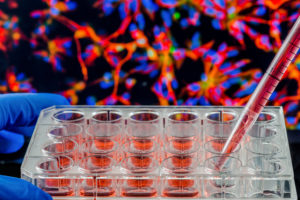18 Feb What Are Stem Cells And What Do They Do?
There has been a significant amount of talk going on about stem cells over the past decade. However, many people are still left wondering, “What are stem cells, and what do they do?” With all the talk that goes on about stem cells and their benefits, there is little education about what stem cells really are, and how they accomplish all the good they do. Learning more about stem cells allows people to understand better how they can benefit from the use of stem cell therapy, and where stem cell therapy may go in the future.
Stem cells, on a basic level, are the cells from which all other cells in the body stem. Stem cells are undifferentiated, meaning they have the ability to change into any kind of cell in the body. Stem cells work by providing new cells for the body as it grows and ages, and replaces specialized cells as they are damaged or lost to age. While stem cells describe a group of undifferentiated cells, not all stem cells are the same. Different types of stem cells have different medicinal purposes.

Embryonic stem cells supply new cells for embryo while it grows on the womb. These are pluripotent cells meaning they can change into any kind of cell present in the body. Adult stem cells supply new cells to replace those that get damaged or lost due to age. Adult stem cells are considered multipotent, meaning they can differentiate into only certain kinds of cells in the body. This means they may only be able to differentiate into blood cells or skin cells. The last type of stem cell is induced pluripotent stem cells. These are cells made by scientists in a laboratory. They take normal differentiated cells and re-program them into pluripotent stem cells like embryonic stem cells.
Stem cells are of such interest to the medical community because of what they are able to do. Stem cells can help heal damaged tissue, help patients avoid surgery, replace cells that cannot be replaced naturally, and help with scientific and medical research. While one of the amazing abilities of stem cells is to potentially provide treatment for ailments with no treatment currently, one of the most important implications of stem cells is their place in scientific research. Understanding how stem cells differentiate could lead to the ability to understand how to grow new organs or how certain diseases occur. This could be revolutionary in preventing various diseases and conditions in the future.
Stem cells have proven to be a very important discovery in the medical community. Understanding how they work has important implications for the future. Patients who once thought there was no cure for their ailment may find relief in stem cell therapy. Physicians who thought there would never be enough organs for those needing transplants may not need to worry about that in the future. Stem cells have been a revolutionary discovery in the field of medicine, and it is exciting to think about what they may provide for the future.


No Comments